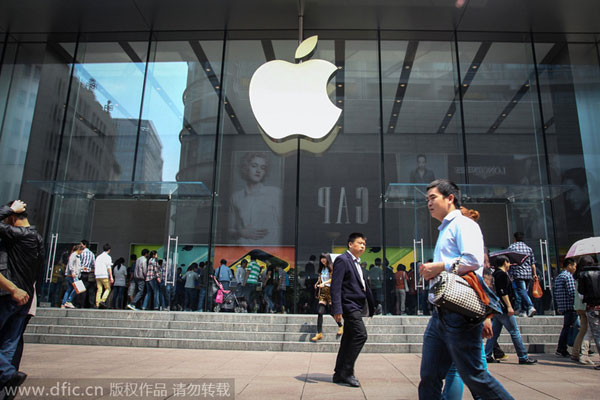Procurement list adjusted for security reasons
By Han Qi (China Daily) Updated: 2015-03-04 08:32
 |
|
Pedestrians walk past an Apple Store on the Nanjing Road shopping street in Shanghai, China, June 20, 2014. [Photo/IC] |
The Chinese government has reportedly removed a number of the world's leading technology companies, including Apple Inc, Cisco Systems Inc and Intel Corp's security software firm McAfee, from its procurement list, and has enrolled more domestically made products as replacements.
If this is the case, such a decision has been made because of security concerns and to support local IT enterprises. Some in the West, however, claim it is a violation of the national treatment principle required by the World Trade Organization, and even a "convenient excuse" for protectionism.
But objectively speaking, China's purchasing adjustment not only serves State security, it also reflects the international practice of countries promoting their domestic electronics industries.
By exposing Washington's massive cyber surveillance, even on the United States' European allies, the former National Security Agency consultant Edward Snowden also warned other countries of how technologically vulnerable they could be in the US-led Internet era.
Therefore Beijing should not be alone in responding to latent security threats from companies such as Facebook, Google, Microsoft, Apple and other US Internet companies, from which the NSA acquires digital communications under its now notorious PRISM program.
Huawei Technologies Co, a Chinese telecommunications giant was previously forbidden to enter the United States market because of security concerns. Thus China is merely echoing the US concerns about technology.

I’ve lived in China for quite a considerable time including my graduate school years, travelled and worked in a few cities and still choose my destination taking into consideration the density of smog or PM2.5 particulate matter in the region.











